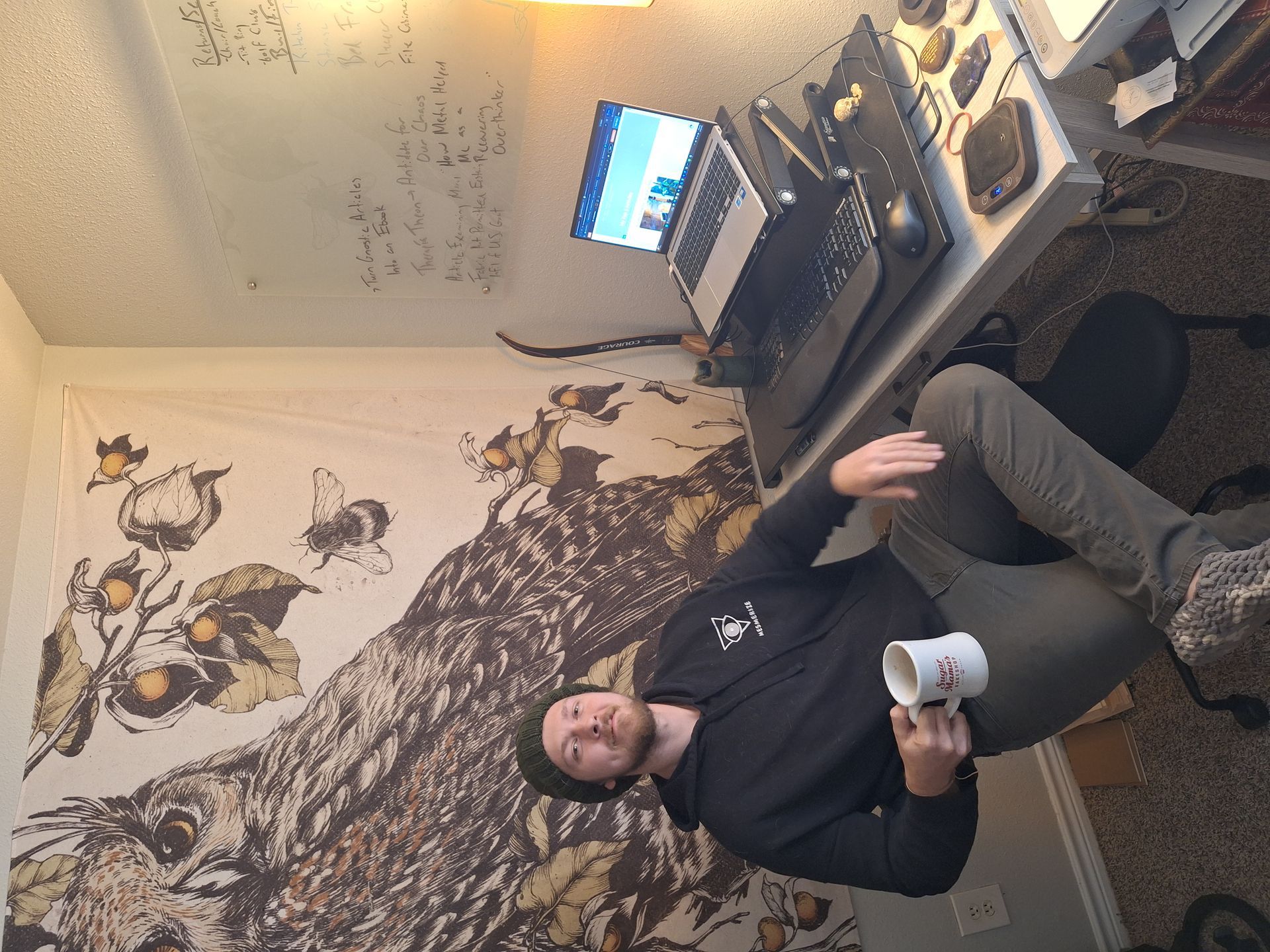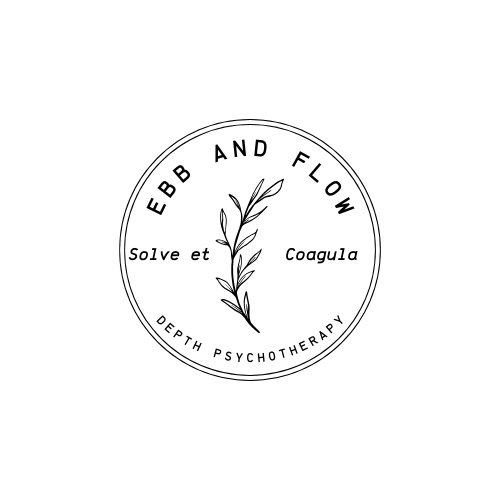Individuals in Society - Society in Individuals
Michael Ebbinghaus • October 11, 2022
The Difficulties We Face Individually and Collectively Have Similar Solutions

The notion that it is only the cortex which possesses consciousness causes a great deal of damage. We congratulate ourselves on our ability to manipulate Nature and other aspects of the material realm all while we kill the roots that permit us our rational capacity. It has led to the mass denigration of the feminine in all its forms, including that which resides in men. The natural world grows festered, contained, and concretized, women across the globe face subjugation and ridicule, and men are so divorced from their feelings that they become identified with patriarchs and victimizers, while the victim within them feeds their tyrannical turmoil.
I’ve studied biology and psychology seriously for nearly fifteen years. It is clear to me that this masculine or hylotropic mode of consciousness is only one element, that it rests on other, more fundamental levels of consciousness, and that it is by the virtue of these “lower” levels that we have rational minds in the first place. Our emotions are conscious, our bodies are conscious, our cells are conscious, as are the molecules and atoms that comprise them, though of course not in the way that we are. It is by an immense coordinated intelligence that we can reflect on our own organism and experience. This immense intelligence comprises all the levels contained within the human organism, including self-reflective awareness, and moves incomprehensibly beyond it.
More and more of us become aware of this, yet little has changed. How?
Reinforcing Identity
Is it a quest for power, the power over others? Many of us would like to believe this. It’s all those greedy white men that don’t want to come down from beyond the glass ceiling, building modern estates that grow closer to fortresses. Certainly these people exist, but no one acts without reflecting their own internal process. They hold pieces of a psychic puzzle just as we do in our communities and families, a certain role. And there are those that take the role of the marginalized race, the downtrodden, the ridiculed immigrant, and the social justice warrior (often white) who has made it their task to speak up for and save these others.
One of the biggest issues in any healing journey is in breaking identifications. They are built upon beds of the loosest sand, and we defend them vehemently. No matter where we look, there is no place to stand. For seemingly good and meaningful reasons, we solidify who we are. Through grace and trauma we line the shelves of our self. When the titles conflict with present reality, we rush to dust and polish them. The conflict that occurs in many dysfunctional families when one member begins to break their connection with a certain role is well-known. People collude to maintain each other’s identities. It happens in families, couples, societies…
And of course, we do it to ourselves.
Individual and Collective Pathology – The Same Forms at Different Levels
Individuals and societies do not behave differently – they are different levels of the same reality and the force that creates it. It can be described by fractal/transinfinite mathematics. But largely we identify people with their roles because this is easiest to do, reflective of the level of our collective consciousness. When we recognize the ecology of souls within us, we can actually begin to form a synthesis of this energy. This is why Roberto Assagioli called his therapeutic approach Psychosynthesis, and he referred to this ecology of souls, these autonomous beings within, as subpersonalities. He was one of the first ones in the Western canon to detail a simple yet sophisticated system of parts work, similar in its scope to Internal Family Systems. IFS focuses more on communicating with and integrating these parts to heal trauma. Assagioli’s psychosynthesis was concerned with correcting trauma in the grander scheme of transcendence, of accessing what he referred to as the supraconscious.
"The idea that our society really gets behind, whether its people can admit it or not, is that more is better."
Carl Jung must be mentioned as well, as his system of analytical psychology
recognized the existence of autonomous energies within the psyche that were outside the person’s awareness, namely the shadow, the anima/animus, and the Self. He specifically mentions four, and indeed, these are the four main archetypes of the individual (the ego, the shadow/unconscious personality, the oppositely gendered being within, and the transpersonal self). The number of our subpersonalities, however, is idiosyncratic, and often many. These lesser or smaller energies that are more idiosyncratic than the archetypal four (but still possess collective patterns) he referred to as complexes. The term rings with scientific and linguistic efficiency but inspires an intellectual distance, which is why I prefer the term subpersonalities. I give mine actual names and encourage my clients to do the same. Among mine are Leary, the doubter, the critic, Markos, and August Mayne (and others – it’s a wild party in here). This permits more lucidity and greater relationship between the parts. Treat them as equals, and they will have greater respect for you too!
Individuals and societies do not differ in how they function. They suffer the same benefits and pathologies. Our current predicament, at its very core, is a problem of over-identification and under-communication. We identify something or someone as conscious only with their words, those they utter and the ones they utter only to themselves. Despite our immense knowledge of the unimaginable intelligence of beings that do not fit our definition of conscious (a slime mold created a better subway system than Japan’s finest engineers), we continue in old ways, eschewing pleasure and enjoyment over efficiency in many regards. Monocropping, suburbanization, converting more and more of the Earth’s biomass to humanity while its people grow sicker and sicker divorced from their natural and mystic roots.
You're Caught!
When we are caught in our roles and in our minds, we will fixate on ideas because they are all we can see. We take an entire world of coca and make cocaine in all of its various manifestations. Too much of a good thing is easily perceptible when the senses are integrated. The child that goes wide-eyed when he spots a tremendous chocolate cake will be disappointed to discover he cannot eat the whole thing in one sitting, and if he does he will be quite sorry he attempted it. The idea that our society really gets behind, whether its people can admit it or not, is that more is better. More wealth, more fun, more freedom, more sex, more food, more more more.
But we have no way to know when we have satiated ourselves. The homeostatic mechanism has been unceremoniously ripped out like a defunct carburetor. Our people are the fattest they have ever been! They are crumbling under the pulpit of MORE.
"Through grace and trauma we line the shelves of our self."
The ego must create artificial scarcity in order to convince the other internal nations that it is best suited for getting what little there is. It pains me to write these words and know they are true of my own nation, exemplified by our agricultural techniques which eviscerate the soil of all the things that make it nutritious. Glyphosate, GMOs that can withstand the glyphosate, and monocropping, after all, will ensure the nation gets fed! You see the problem? Our solutions are killing us!
When we assign someone a particular role: have, have-not, misogynist, clown, politician, scoundrel, good guy, etc. etc., we collude in their identity just as, if not more powerfully than they do on their own. It is difficult to grow beyond our limitations when we consistently condition each other into perceived roles and identities, small bastions of consciousness dammed off from the great sea. There is a greater fullness, and it is achieved through communication and a willingness to play with different thought forms and ideas even if we may not initially agree with them, even if they fill us with disgust. The nakedness required of us can feel so dangerous that the difficult conversations simply go unspoken, the most dangerous place for all of us to be.
"When we assign someone a particular role...we collude in their identity just as, if not more powerfully than they do on their own."
And as individuals? How often are we convinced of our own identifications, as good or bad, productive or unproductive, as relational roles and occupational titles? Are any of these things actually you? What were you before you became what you now call yourself? If you make careful observation of yourself, the ecology within will be apparent. This is the nation you have been tasked with setting to order. By setting your own being to order, you invite harmony beyond your organism, too. And when our nations are set in order, they will assist in creating citizens that are more in harmony, and the process can feed in on itself in a beautiful way.
Set the inner structure to order. Be in the world, work your dharma, and watch the social structures align. Magnificence can proceed even further.


